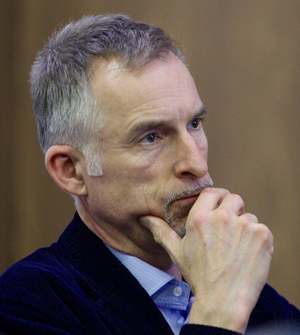Europe takes heed of the ideas for coherence of the non-governmental sector from the Western Balkans and the Black Sea region initiated by the Bulgarian Presidency of the Council of the European Union.
Representatives of over 80 non-governmental organizations from the Western Balkans and the Black Sea region gathered in Bulgaria’s capital Sofia to establish their own network monitoring state policies in healthcare, education and gender equality. Such an event is very important for us, because it focuses on key development goals and makes the connection between the civil society and the state administration. The aim is to build sustainable and effective policies for the future. The forum in Sofia is a platform for contacts between the countries from the Western Balkans and the Black Sea region. The European perspective and the coherence of the Western Balkans is a specific priority of the Bulgarian Presidency of the Council of the European Union. With this argument the Bulgarian Ministry of Foreign Affairs supported and was involved in organizing the conference dedicated to development-oriented cooperation within the context of changes. “Each initiative organized by the civil sector or the academia reflects on the Presidency of the Council of the European Union”, Deputy Minister for the Bulgarian Presidency of the Council of the European Union 2018 Monika Panayotova says.
“Being a President of the Council of the European Union Bulgaria now chairs one of the working groups. Its aim is to make global development goals applicable to all countries. The topics related to security, environment, demographic challenges, digitalization and “revolution 4.0” are challenges of different dimensions in the fields of internal order and security, energy security, cyber protection and social security. These challenges can be overcome by a complex and integrated approach. This process goes through transformation of our societies and our economies as a whole, so we can respond adequately to the new realities. The EU is not only a union of countries or union of related economies. It is above all a union of conectivity between people. Each constructive initiative and action result in stability and progress and have their added value”, Monika Panayotova said.
 “The reason for the presence of the European countries’ migrant policies on the agenda of the conference is that it has a huge impact on the society,” says Seamus Jeffreson, Director of the European NGO Confederation for Relief and Development CONCORD, and adds:
“The reason for the presence of the European countries’ migrant policies on the agenda of the conference is that it has a huge impact on the society,” says Seamus Jeffreson, Director of the European NGO Confederation for Relief and Development CONCORD, and adds:
“The EU migration policy over the past two to three years, supported by the European governments, has been implemented under the influence of this big defensive thesis that the migration flow must be stopped. One-fifth of the targeted assistance is money, which is a prerequisite for corruption across European countries. However, the price for the refugee wave is paid not in Africa, not in Latin America, not in Asia, but here – in Europe. The reception, the integration and the stay of the people arriving in Europe is assisted through financial instruments aimed at fighting poverty. The money spent on assistance of refugees was more than what was spent on humanitarian aid to needy areas. The paradox is that the problem only expanded due to the inclusion of various kinds of measures without however providing national targeted platforms. This is due to the incorrect use of the funds. That is why the non-governmental sector now has more work to do, in order to find out how public money is used, what it is used for and whether these funds achieve their goals, or have been diverted.”
English version: Kostadin Atanasov
NATO tests new 'no U.S.' mission model in Balkans NATO is testing its ability to deploy rapidly across Eastern Europe - without direct US support - as Washington shifts its approach to European defence and the war in Ukraine, the Associated Press..
Love blooms with renewed vigour every year on 14 February! Valentine's Day is increasingly being celebrated in Bulgaria as a holiday that inspires lovers to share beautiful moments together. Traditions include the exchange of cards, gifts and romantic..
From February 14 to 16, an event under the motto "Love and Wine" will allow Sofia residents and guests of the city to combine the Bulgarian holiday of wine Trifon Zarezan with Valentine's Day. It will be held on the pedestrian zone..
Exactly 3 years ago, on February 24, Russia’s invasion of Ukraine began – an event that woke up Europe 77 years after the end of World War II and called..

+359 2 9336 661
